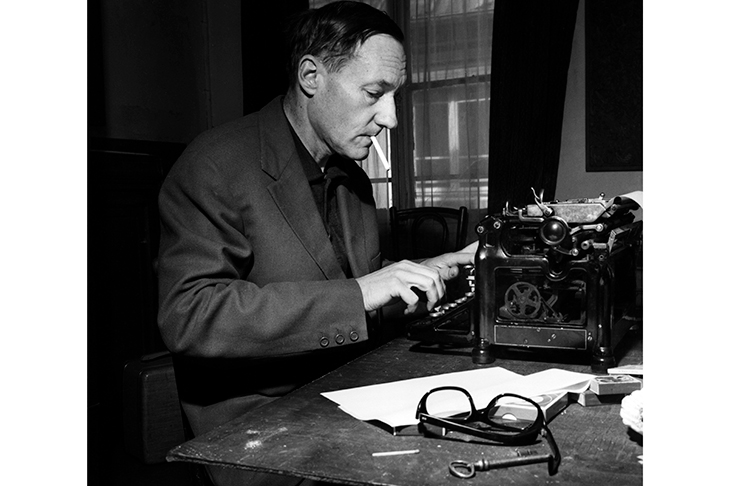William Burroughs was introduced to a British readership in November 1963, and the welcome he received was ‘UGH…’ The headline stood guard over a review in the Times Literary Supplement of Dead Fingers Talk, the first legally obtainable book by Burroughs to be offered to the public in this country. Included in the round-up was a trilogy of novels issued in previous years by the Olympia Press in Paris: The Naked Lunch (1959), The Soft Machine (1961) and The Ticket That Exploded (1962). The three had been compressed, disassembled and rearranged in selected parts by Burroughs himself to create Dead Fingers Talk. The book was launched as a pilot fish by John Calder into a world in which the Lady Chatterley trial was a recent memory and the Lord Chamberlain still had a say in what appeared on the British stage. Could Burroughs swim safely into the mainstream?
The ‘UGH…’ review was anonymous, but it is now well known that its author was John Willett, the deputy editor of the TLS and a translator of Brecht. Burroughs’s novels, he noted, had already attracted ‘the respectful admiration of one or two half-stupified critics’, apparently excited by their outlaw status:
Now the author himself has fished out an assortment of lumps from all three, stirring the mixture and topping it up to make a fourth, slightly more hygienic bucketful which can be cast before us swine.

In his introduction to this new edition of Dead Fingers Talk, Oliver Harris, who probably knows more about Burroughs than anyone alive, calls it ‘a book gone missing in the Burroughs oeuvre’. For half a century it existed ‘more as a title flickering in and out of footnotes than as a work that anybody actually read’.







Comments
Join the debate for just £1 a month
Be part of the conversation with other Spectator readers by getting your first three months for £3.
UNLOCK ACCESS Just £1 a monthAlready a subscriber? Log in